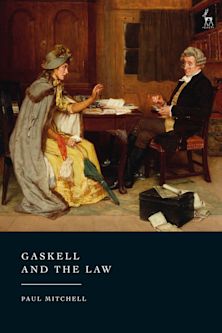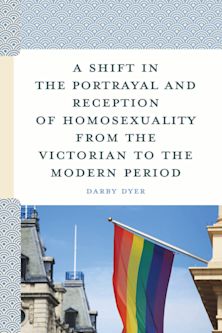- Home
- ACADEMIC
- Literary Studies
- Literary Studies - Other
- Women's Work as Political Art
Women's Work as Political Art
Weaving and Dialectical Politics in Homer, Aristophanes, and Plato
Women's Work as Political Art
Weaving and Dialectical Politics in Homer, Aristophanes, and Plato
This product is usually dispatched within 1 week
- Delivery and returns info
-
Free US delivery on orders $35 or over
You must sign in to add this item to your wishlist. Please sign in or create an account
Description
"Women's Work" as Political Art traces the evolution of weaving as metaphor in Homer's Odyssey, Aristophanes' Lysistrata, and Plato's Statesman and Phaedo. This figurative technique represents a dialectical approach to politics that combines disparate individuals within a greater community through philosophic inquiry. Expanding on feminist theorists such as Martha Nussbaum, Lisa Pace Vetter argues that in these works, the metaphor of the traditionally feminine art of weaving conveys complex and inclusive teachings that address the concerns of women more effectively than commonly believed. This book offers valuable insight to scholars of political theory, gender studies, and classics alike.
Table of Contents
Chapter 2 Introduction
Chapter 3 Situating Plato's Dialectical politics in Contemporary Debates
Chapter 4 Penelope's Dialectical Weavings in Homer's Odyssey
Chapter 5 Homespun Statesmanship and Political Peace in Aristophanes' Lysistrata
Chapter 6 The Unraveling of Philosophy and Political Life in Plato's Statesman
Chapter 7 The Socratic Interweaving of Philosophy and Politics in Plato's Phaedo
Chapter 8 Conclusion
Product details
| Published | Apr 25 2005 |
|---|---|
| Format | Hardback |
| Edition | 1st |
| Extent | 190 |
| ISBN | 9780739110638 |
| Imprint | Lexington Books |
| Dimensions | 9 x 6 inches |
| Publisher | Bloomsbury Publishing |
About the contributors
Reviews
-
In "Women's Work", Lisa Vetter makes a strong case for the relevance of classical political philosophy to the concerns of contemporary democratic theorists and feminists. Her suggestion that philosophical inquiry is the warp through which the diverse threads of our political fabric must be woven and rewoven rests upon a scholarly appreciation of Plato as the supreme dialectical weaver.
Jacob Howland, McFarlin Professor of Philosophy, University of Tulsa
-
Lisa Vetter has written a fascinating and illuminating book on the importance of images drawn from what the ancient sources treat as the woman's work of weaving for the “manly” work of statesmanship. She concludes that an art traditionally seen as feminine provides essential insights and guideposts for thoughtful, moderate and effective citizenship. Her choice of weaving as the unifying theme is inspired and important, both for what it suggests about the meanings of that image within the texts of Homer, Aristophanes and Plato and for the ways that it enables discussion of important issues in postmodern political theory and gender studies.
Gerald Mara, Executive Associate Dean of the Graduate School of Arts and Sciences, Georgetown University
-
Professor Vetter's absorbing analysis weaves contemporary questions into a tapestry whose background is classical wisdom gleaned from some of the most significant Greek texts and whose foreground illuminates her fresh insights about the unique place of women in philosophic dialectic and political debate.
Leslie G. Rubin, Associate Director, Society for Greek Political Thought
-
A discursive approach which admits the global economy to political scrutiny is urgently needed, and the contemporary work of women, woven together across borders, spaces, cultures and generations, is a good platform upon which to engender a dialectical commonness which does not eliminate difference-an approach which is very much in the spirit of Vetter's Plato.
Political Studies Review
-
First, the author presents with admirable clarity the way in which the literary-dramatic form of the dialogues has democratic implications in its dialectical invocation of a number of contesting voices. Second, and perhaps more distinctively, the author argues powerfully that such a democratically inclined dialectic can be particularly fruitful in remedying some of the inadequacies of the debate in contemporary feminist inquiry.
Paul Stern, Professor of Politics and International Relations, Ursinus College


































